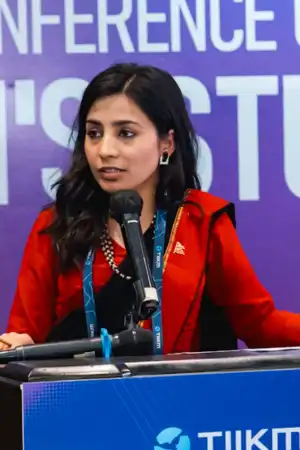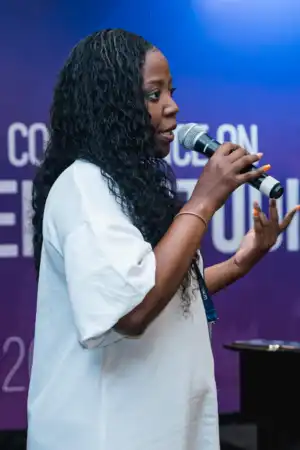Call for Papers
- Home
- Call for Papers



For the past several years, The women studies conference has established itself as a premier global platform for scholars, activists, educators, and practitioners dedicated to advancing gender equity and social justice. Each year, this conference fosters a powerful dialogue across disciplines and regions, promoting inclusive, intersectional, and transformative approaches to gender-related issues.
Key Objectives of WCWS 2026:
- Explore global and local challenges in gender equality through interdisciplinary perspectives.
- Amplify marginalized voices by highlighting lived experiences of women, LGBTQ+ individuals, and other underrepresented groups.
- Advance feminist theories and practices through critical discourse, decolonial frameworks, and grassroots activism.
- Promote policy-oriented research that addresses gender-based violence, reproductive rights, economic justice, and political participation.
- Secure global collaboration among scholars, institutions, NGOs, and community leaders to influence change and inspire action.
How We Achieve This:
The 2026 conference will include:
- Keynote speeches from leading gender scholars and activists.
- Interactive panels and workshops focused on theory, methodology, advocacy, and best practices.
- Research presentation sessions to share emerging scholarships and engage in critical feedback.
- Focused group and interactive discussions
- Networking opportunities to connect with academics, practitioners, and organizations working on gender equality globally.
Join us as we work together to reimagine a more just, inclusive, and equitable world through scholarship, solidarity, and collective action. Submit your paper and be a part of this vital conversation.
Conference Main Theme:
The Power of Dialogue: Abolishing the Conditions of Voicelessness
The theme “The Power of Dialogue: Abolishing the Conditions of Voicelessness” underscores the urgent need to challenge systems and structures that silence marginalized voices, particularly those of women and other oppressed communities. By centering dialogue as a transformative act, the conference calls for inclusive and intersectional conversations that not only amplify silenced narratives but also dismantle the social, political, and cultural barriers that uphold inequality. This theme invites scholars, activists, and practitioners to critically engage with the ways power operates through language, representation, and exclusion—highlighting dialogue not just as communication, but as a radical tool for resistance, recognition, and justice.
Call for paper tracks are follows but not limited to:
- Addressing trauma through dialogue
- Women at the table negotiating peace
- Transforming systems of structural violence
- Creating menstrual dignity and ending period poverty
- Counter-hegemony and challenging taboos
- Queer Optics and Feminism
- Land Rights
- Reproductive Politics
- Women’s Leadership
- Masculinities Reimagined
- Reproductive Rights
- Redistributing Caregiving
- Precarities and Vulnerabilities
- Protests and Uprisings
- Black Lives Matter
- Dalit Lives Matter
- Climate Refugees
- Gender Equality
- Educational Systems
- Toxic Masculinity
- Resocialization of Men
- Socialization of Boys
- Legal Remedies
- Implementing Law
- Law and Accountability
- Inheritance Rights
- Gender and Sexual Diversity
- Women’s Human Rights
- Women, Climate Change and Inequality
- Women Empowerment and Social Change
- Challenging Male Dominance
- Consciousness-raising
- Men as Allies in the Struggle
- Women, Media and Technology
- Transgender Rights and Sexual Diversity
- Women’s Success Stories
- Cyber Feminisms—Blogs, Zines, and Reproductive Rights
- Activist Art
- Feminism and Decolonial Praxis
- Women’s Spirituality and Religion
- Trafficking and Prostitution
- Women in Politics and Public Administration
- Women and Religion
- Women and Islamic Sharia
- Motherhood and Work-Life Balance
- Equity and Equality
- Laws and Policies
- Gendered and Sexual Diversities
You may send your abstract according to the abstract guidelines. Different registration packages of the conference provide you so many benefits including food, conference pack, abstract book, eligibility to attend the technical sessions, career development workshops, publication opportunities etc. You can select different presentation modes according to your preference. Presentations awards are one of the key elements of the conference. The presenters at the conference will be evaluated by a special committee of academic experts during the conference, and the best presenters will be awarded at the award ceremony.
Abstract Guidelines
To facilitate the submission process and the subsequent follow-up process, please consider the following guidelines, information, tips, terms and deadlines mentioned.
Download Abstract Template by Registering here
Basic Format for Abstracts
- An abstract is a compendious summary of a research paper’s substance including its background, purpose, methodology, results, and conclusion.
- It should be one paragraph with a word limit of 175-275.
- Keywords should be provided as a must (no more than 06 words).
- Keywords should be written in lowercase letters (Not applicable to names/scientific names) and should be separated with commas.
- Please do not include subheadings, bullets, lists and header/footer in the abstract.
- Abstract titles should be short, but descriptive. Informative titles, indicating key points are encouraged. Abbreviations should not be used in the title.
- Acronyms should be written in full the first time, mentioned in the text, followed by the abbreviation in parentheses.
- Always follow SI Units.
- Scientific names must be in Italic.
- Use a negative exponent (e.g. kg m-3) and do not indicate units as divisions (e.g. kg/m3). Chemical formulae should be written in a standard form such as “CaCO3”, not as “CaCO3”. Use a zero before decimal points such as “0.45,” not “.45.”
- There shall be no citations or references in the abstract specifically. If there is a need to cite references, please provide the sources in brackets.
About the Reviewing Process
- Your abstract will undergo a double-blind peer review by the International Scientific committee after its receipt.
- Results of the abstract review will be sent to the author within two weeks of submission.
- The Conference Chair serves as the head of the scientific committee and will take the final decision on abstracts.
- Acceptance or rejections of the paper will be sent to you with reviewer comments.
- If a revision is required, the revised abstract must be sent back within a week.
- If your abstract is accepted, you will be invited to register for the Conference.
If you are not hearing from us
- Please set your spam filter to accept message from (WCWS MAIL)
- Contact the main conference coordinator at (WCWS MAIL) in case you do not receive an acknowledgment/follow-up email within 48 hours after your registration or inquiry.
- Please check your spam/junk folder prior to making inquiries regarding your concern.
- Make sure to provide your mobile phone number in your registration form along with your abstract for further communications
Font
- Title: Times New Roman, 12 points, Upper case, Centered text in bold
- Body: Times New Roman, 11 points; Line spacing: 1, one column of text
Affiliations
- Title: Times New Roman, 12 points, Upper case, Centered text in bold
- Body: Times New Roman, 11 points; Line spacing: 1, one column of text
General Instructions
- Abstracts should represent the original work.
- Informative abstracts and critical abstracts are accepted.
- The Abstract should be written in English.
- Please indicate one – three most relevant themes for your abstract from the conference tracks.
- Please send in a brief biography together with the Abstract (An example is given in the abstract template).
- Please download the abstract template and follow the format carefully.
- Documents that do not conform to the guidelines will be asked to be revised.
- Documents received after the given deadline, due to any reason will not be accepted unless the deadline is extended.
- The abstract should be submitted in the format of MS Word (.doc or .docx) document.
Important information for the Co-Authors
- Abstracts should represent the original work.
- Informative abstracts and critical abstracts are accepted.
- The Abstract should be written in English.
- Please indicate one – three most relevant themes for your abstract from the conference tracks.
- Please send in a brief biography together with the Abstract (An example is given in the abstract template).
- Please download the abstract template and follow the format carefully.
- Documents that do not conform to the guidelines will be asked to be revised.
- Documents received after the given deadline, due to any reason will not be accepted unless the deadline is extended.
- The abstract should be submitted in the format of MS Word (.doc or .docx) document.
